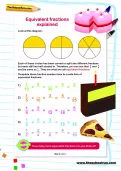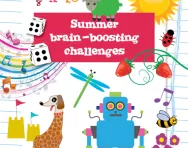Important update from TheSchoolRun
For the past 13 years, TheSchoolRun has been run by a small team of mums working from home, dedicated to providing quality educational resources to primary school parents. Unfortunately, rising supplier costs and falling revenue have made it impossible for us to continue operating, and we’ve had to make the difficult decision to close. The good news: We’ve arranged for another educational provider to take over many of our resources. These will be hosted on a new portal, where the content will be updated and expanded to support your child’s learning.
What this means for subscribers:
- Your subscription is still active, and for now, you can keep using the website as normal — just log in with your usual details to access all our articles and resources*.
- In a few months, all resources will move to the new portal. You’ll continue to have access there until your subscription ends. We’ll send you full details nearer the time.
- As a thank you for your support, we’ll also be sending you 16 primary school eBooks (worth £108.84) to download and keep.
A few changes to be aware of:
- The Learning Journey weekly email has ended, but your child’s plan will still be updated on your dashboard each Monday. Just log in to see the recommended worksheets.
- The 11+ weekly emails have now ended. We sent you all the remaining emails in the series at the end of March — please check your inbox (and spam folder) if you haven’t seen them. You can also follow the full programme here: 11+ Learning Journey.
If you have any questions, please contact us at [email protected]. Thank you for being part of our journey it’s been a privilege to support your family’s learning.
*If you need to reset your password, it will still work as usual. Please check your spam folder if the reset email doesn’t appear in your inbox.
Boosting your child's concentration skills

What affects concentration skills?
Some children and adults have difficulties with their concentration skills. There are many factors which may affect the ability to concentrate. They include:
- Age – generally younger children find it harder to concentrate than older children and adults
- Motivation and interest – if we are interested in what we are doing then we are more likely to concentrate for a longer period


Start a unique learning programme!
- Weekly programme for each school year
- Worksheets sent direct to your inbox
- Keeps your child's learning on track
- Personal circumstances – if we are preoccupied with something happening in our personal life we will find it harder to concentrate on specific tasks
- Understanding – if we understand our task, we can focus for longer
- Our surroundings – the conditions around us can affect our ability to concentrate
- Health – our diets, sleeping patterns, and general health can all affect our concentration skills
Conditions that affect concentration
Alongside these factors, there are also conditions that can affect the ability to concentrate. Often children with learning difficulties will find they concentrate for shorter periods of time than their classmates. Conditions that can affect concentration include:
ADHD (Attention Deficit Hyperactivity Disorder)
Many children with ADHD have been described as suffering from ‘inattentiveness'. This can refer to a short attention span, over-frequent changes of activity, and being easily distracted.
Autism
As with autistic adults, autistic children often focus on a particular area which interests them; it can therefore often be difficult to stimulate their attention in other areas.
Learning difficulties such as dyslexia and dyscalculia
Children with learning difficulties may experience a lack of understanding which can hamper their motivation to concentrate. If the child is not given the correct support and provision, they can feel excluded from the learning and therefore will become distracted or frustrated.
Boosting concentration skills: how you can help
- Make a note of the times your child finds it difficult to concentrate and explore any reasons which may be affecting this
- Be realistic – don't expect your child to concentrate for too long
- Help to stimulate your child's motivation by tapping into their interests
- Try some concentration games and exercises
- Give plenty of praise! You could even offer little rewards for good concentration, but remember not to go overboard with this as it could be distracting in itself!








